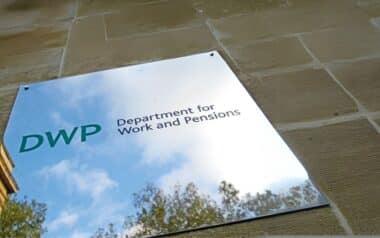New research from the Fabian Society reveals a startling statistic: 16% of UK pensioners, amounting to 1.9 million individuals, are living in poverty. This figure challenges the widely held belief that retirement equates to financial security, instead exposing stark inequalities among the elderly.
Sasjkia Otto of the Fabian Society underscored this disparity, stating:”It’s a common misconception that all pensioners are well off, but this masks significant inequality. Neither the state pension nor benefits guarantee protection from poverty, and many are falling through the cracks, especially those who are renting.”
Rising Financial Strain in the Private Rental Sector
The issue is especially pronounced among those in the private rental sector, with rising rents exacerbating financial strain.
Key Findings from the Fabian Society Report
- The state pension fails to prevent poverty for all recipients.
- Those retiring under the Basic State Pension (pre-2016) face tougher qualification rules, leaving many without the full amount.
- Women and renters are disproportionately affected.
- Nearly 100,000 pensioners are repaying debts to the Department for Work and Pensions (DWP), which reduces benefits by up to one-third during repayment.
A Political Storm: Cuts to the Winter Fuel Payment
The decision by Chancellor Rachel Reeves to cut the winter fuel payment, valued at up to £300, has sparked widespread outrage. The Daily Express has demanded an immediate reversal of this policy, which affects 10 million pensioners facing rising living costs.
This move comes as inflation continues to bite, with elderly households among the hardest hit. Critics warn that such cuts signal a disregard for the dignity and security of retirees.
Impact of Means-Tested Deductions
The Fabian Society’s report highlights the financial strain imposed by means-tested benefit deductions:
- Annual reductions range from £663 to £1,768, depending on individual circumstances.
- These cuts disproportionately affect pensioners outside of care homes, many of whom are already struggling with basic living expenses.
The Failing Safety Net of the State Pension
The report, Mature Decisions: Options for Alleviating Pensioner Poverty, draws attention to systemic issues within the state pension system. Key disparities include:
- Recipients of the Basic State Pension are at greater risk of poverty due to restrictive qualification rules.
- Women, who often have interrupted work histories, face even greater challenges in securing full pension entitlements.
- Even the New State Pension is insufficient for many, particularly those grappling with housing costs or National Insurance contribution gaps.
| Category | Poverty Risk | Factors |
|---|---|---|
| Basic State Pension | High | Tougher qualification rules pre-2016 |
| New State Pension | Moderate | Housing costs, contribution gaps |
| Renters | Severe | Rising rental costs |
| Women | Severe | Lower lifetime contributions |
Urgent Call for Government Action to Address Pensioner Poverty
Sasjkia Otto has called for urgent government action, invoking the principles of the 1942 Beveridge Report, which aimed to ensure pensions to protect against poverty:“Now, it is time for Labour to finish what they started.”
The Fabian Society is urging the government to use the upcoming pensions review to reimagine the role of the state pension in the 21st century. Otto emphasised the dual importance of addressing pensioner poverty, both for social justice and to reduce the billions spent annually on health and social care linked to poverty.
DWP Stresses Commitment to Pension Increases and Support Programs Amid Criticism
The DWP has defended its policies, pointing to its commitment to the Triple Lock, which ensures annual pension increases in line with inflation, earnings, or 2.5%, whichever is highest. A spokesperson stated:”Millions will see their State Pension rise by up to £1,900 over this parliament. Alongside this, we extended the Household Support Fund to help with the cost of food, heating, and bills.”
The department also highlighted its efforts to increase uptake of Pension Credit, worth up to £4,200 annually, which unlocks access to additional benefits.
The Economic Necessity of Reforming Support for Pensioners
Addressing pensioner poverty is not merely a moral imperative, but also an economic necessity. The rising cost of healthcare and social services linked to poverty underscores the urgency of reform. The Fabian Society’s findings demand a fundamental reassessment of how the UK supports its ageing population.
Got a reaction? Share your thoughts in the comments
Enjoyed this article? Subscribe to our free Newsletter for captivating articles, exclusive content, and the latest news.









